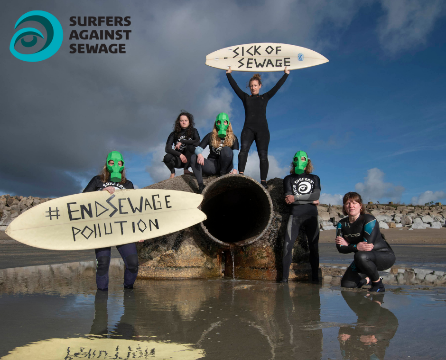The public do not believe that charities and NGOs have an important role in tackling the climate crisis, research has revealed.
It has emerged that the public believes governments and corporations have the largest role to play, followed by international organisations such as the United Nations, then individuals “and finally charities”, found the research by consultancy nfpResearch.
It warns that “the sector needs to improve its standing in the minds of the public as impactful agents of change”.
“It’s only through building trust in the effectiveness of environmental charities that we can guarantee public support in the future,” said nfpResearch.
The consultancy’s further findings show that there is considerable appetite from the public to be more aware of the climate crisis, suggesting effective charity communications will find an audience.
The climate crisis is the third biggest priority for the public and almost three quarters (72%) believe the impact of climate change is already “visible on a global scale”. A similar proportion (71%) believe it is already influencing the UK environment.
However, “what is concerning is that 22% of the public are not sure that they see any evidence for climate change”, says nfpResearch.
This suggests that “unifying the nation in its efforts to fight these issues has to be the priority, which means reaching this one-in-five who have yet to be convinced”.
The consultancy also found that almost half the public (47%) want government to prioritise the environment, while 38% believe green issues should take a backseat in stimulating the economy.
✏️POP QUIZ! 📒
— nfpResearch (@nfp_Research) February 23, 2023
Test how well you know public attitudes towards environmentalism 👉 https://t.co/LqmzUMBZxj
We'll be exploring some of this surprising data in tomorrow's blog - let us know how you score!
“The lockdown and cost-of-living crisis have financially impacted a huge number of people, so it should be no surprise that we saw a rise in 2020 for those who encouraged support for the economy even if it hurts the environment,” said the consultancy.
“The difficulty in reaching this audience is in making the case for the bigger picture, wherein the climate crisis does more long-term economic harm than they may realise.”
A concern raised in nfpResearch’s survey is that the public’s interest in fighting climate change in their day-to-day lives has reduced over the last decade.
For example, in 2011 84% of the public recycled, but in 2022 this fell to 63%.
nfpResearch says more work needs to be done by charities to convince younger people of the importance of being eco-conscious in their lives.
“While older generations are still taking personal responsibility for climate concerns, 16-24 year olds are far less likely to be making any day-to-day efforts to reduce their environmental impact,” it said.
“There has been an increase in those saying they’ve considered taking on more eco-conscious personal habits but it seems that many have yet to pull the trigger on adapting their lifestyle.
“Ushering younger generations towards embracing the challenges of environmental awareness will be a key effort in the coming years.”
One factor in a lack of interest among the public in acting themselves on the climate is a sense of powerless to tackle such an enormous problem.
“Of the top six responses to how the public feels emotionally about the climate crisis, five were negative: powerless, frustrated, depressed, angry, and afraid,” nfpResearch added.
“Crucially, powerless is the most common response, which may be acting as a deterrent from action for many individuals who do not see that they can have any impact.”
Charities struggling to be heard
Over the last year a raft of evidence has emerged to support concerns that charities are struggling to get their voice heard on climate change.
Last September, a survey by C&E Advisory Services, found only a quarter of businesses believe charities have effective environmental, social and governance (ESG) plans in place.
In a report by Investor Update, one charity representative surveyed said that “the level of ESG knowledge maturity is very low among charities compared to corporates” adding that “ESG is seen from a very basic lens such as recycling”.
Meanwhile, a survey by Garfield Weston Foundation found that half of green charities surveyed said the biggest challenge they face is a lack of public understanding about the urgency to act on environmental issues. Just three in ten believe grant makers understand their environmental work, they added.
















Recent Stories